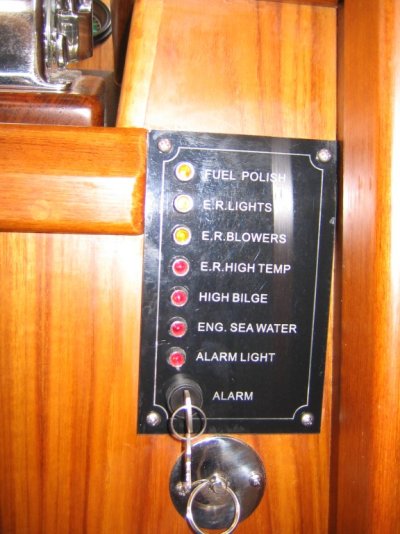Forkliftt
Guru
- Joined
- Oct 6, 2007
- Messages
- 2,450
- Location
- USA
- Vessel Name
- KnotDoneYet
- Vessel Make
- 1983 42' Present Sundeck
Hello All
Reading an anchoring thread on another section - a high water bilge alarm was mentioned. It reminded me of a large capacity bilge pump I installed a year or so ago, complete with a new thru hull and larger diameter hose.
I intentionally installed this pump 6" or so higher than the original smaller pump. During the wiring portion, I ran a new wire from my lower helm horn button to the positive (+) wire coming OUT of the float switch.
My dock neighbor at the time, who had a knack of making any project extremely COMPLICATED, pointed out that design was flawed. I should install a one-way diode, or better yet, use a relay wired in to feed the horn circuit.
Of course his idea would have worked, at least as long as the additional terminal connections required didn't corrode . KISS I say. The only negative in my circuit I figured, was the pump got to spin occasionally when I blew the horn!
. KISS I say. The only negative in my circuit I figured, was the pump got to spin occasionally when I blew the horn!
Was I being too hard on the dock neighbor?
Was I being too easy on myself?
-- Edited by Forkliftt on Tuesday 26th of April 2011 07:32:47 PM
Reading an anchoring thread on another section - a high water bilge alarm was mentioned. It reminded me of a large capacity bilge pump I installed a year or so ago, complete with a new thru hull and larger diameter hose.
I intentionally installed this pump 6" or so higher than the original smaller pump. During the wiring portion, I ran a new wire from my lower helm horn button to the positive (+) wire coming OUT of the float switch.
My dock neighbor at the time, who had a knack of making any project extremely COMPLICATED, pointed out that design was flawed. I should install a one-way diode, or better yet, use a relay wired in to feed the horn circuit.
Of course his idea would have worked, at least as long as the additional terminal connections required didn't corrode
Was I being too hard on the dock neighbor?
Was I being too easy on myself?
-- Edited by Forkliftt on Tuesday 26th of April 2011 07:32:47 PM

